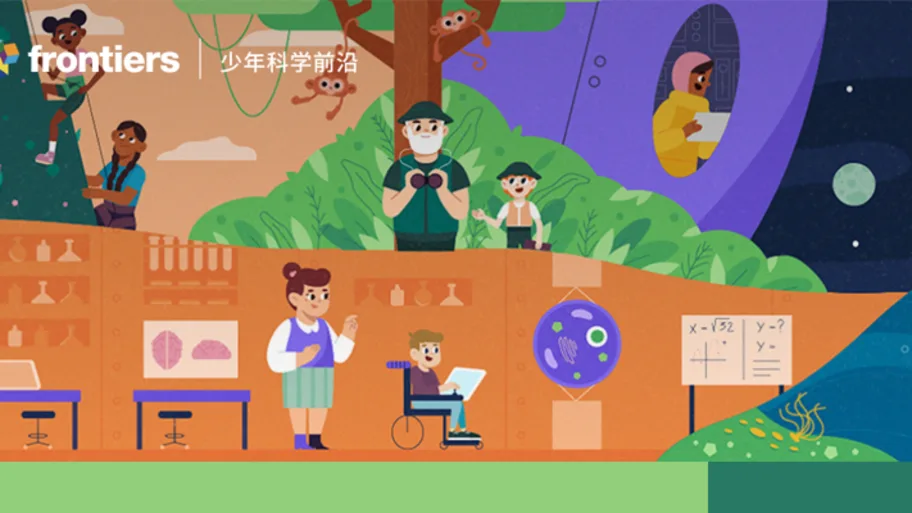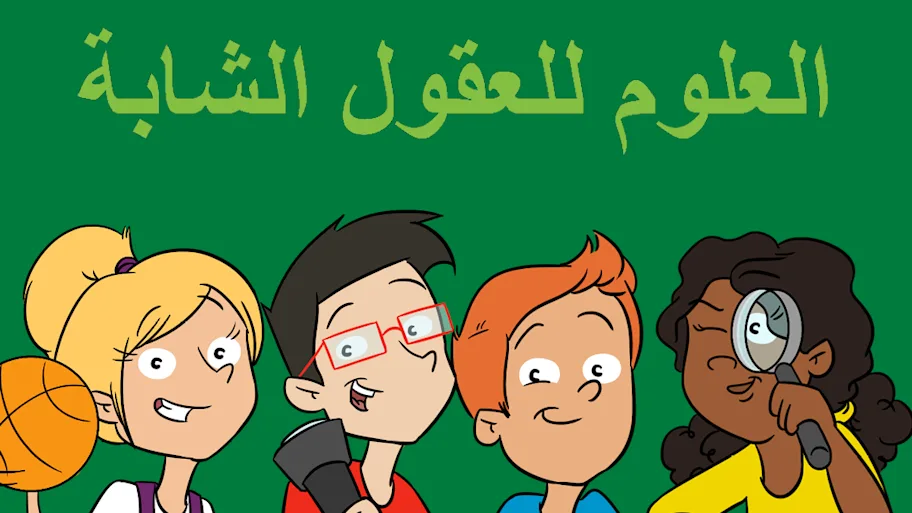
- Science news
- Young Minds
- 10 articles showcasing accessible science for kids
10 articles showcasing accessible science for kids

Why is 10 such an amazing number? Well, Pythagoras considered 10 to be the most sacred number, crabs have 10 appendages, and Frontiers is having its 10th Birthday this year. At Frontiers for Young Minds we decided to join in on that celebration by presenting you with 10 articles showcasing accessible science for kids and teens.
– By Hedwig Ens
At the Editorial Office of Frontiers for Young Minds we support scientists in making their research accessible for a younger audience. As a community, we thereby help to create a library of freely accessible scientific articles that are simplified, yet scientifically correct, and understandable for kids and teens. An outcome that we think deserves to be celebrated every day.
When asked to pick 10 great articles to join the celebrations, we knew it would be tricky to narrow it down to only 10. As every article is a showcase of immense dedication from the authors, editors, and young reviewers involved, and all merit an audience.
So instead, we decided to base our selection on articles spanning a diverse range in topics that could be used as a starting point for (young) readers to discover the journal – with articles written by a diversity of authors, and reviewed by a diversity of young reviewers.
Check out the 10 articles we selected and discover how each of them covers an intriguing scientific discovery or concept.
🌵 How Do Plants Deal with Dry Days? – Imagine this: it’s very dry, you’re in desperate need of water, but unable to move. Sounds horrible, right? Welcome to the life of plants! Find out how plants have developed strategies to deal with droughts.
🐳 Human Disturbances Might Cause Dangerous Gas Bubbles to Form in Deep-Diving Whales – What do whales and soda bottles have in common? Bubbles! Read here how disturbance by humans can cause problematic bubble formation in whales.
🧠**Why We Can’t Replace Our Brains with the Internet** – Cannot live without the internet? Wondering why school made you learn things by heart? Wanting to know what your brain does better than the internet? Read it in this article!
🌊 Secret Gardens Under the Sea: What are Seagrass Meadows and Why are They Important? – A secret underwater garden is the home of a special marine plant called seagrass. This plant is important to thousands of marine animals, and currently lost at a rate of about two football fields every hour. What to do?
📌 How Does a Fruit Fly Say “Ouch”? – Did you know that we’ve been studying those tiny flies you always find around your fruit for already over 100 years? Join a scientist in her quest to build a better bandage, and find out why she needed a fruit fly “ouch scale”.
👫 Game Theory and Cooperation: How Putting Others First Can Help Everyone – Some mathematicians play, ehm investigate, games all day. And actually, we are all continuously playing games! Feeling a bit puzzled? This article will give solace, and teaches you the rules of the Prisoners’ Dilemma.
☁ Removing Harmful Greenhouse Gases from the Air Using Energy from Plants – Want to have a look into a future that we can create? Scientists present a new technology: a special network that delivers electricity to your home that can remove, rather than release, CO2.
📻 What Do Radio Waves Tell Us about the Universe? – Want to be an astronomer? Grab your telescope and turn your eye to this article: radio telescopes are unveiling some secrets of the universe.
⏳ I Want It Now! The Neuroscience of Teenage Impulsivity – How many times have you heard the phrase ‘Just be patient!’ when you were a teenager? Find out here why it was (and is?) actually so difficult to be patient.
😧 How Do Emotions Work? – Did you know that your thoughts can make you feel 😀,😭,😠, and 😧? Read here what emotions are, where they come from, how you can find out what you feel, and how to deal with your emotions.
We hope you’ll find something new and exciting to share in every one of these articles. Want to read more of our fascinating articles? Have a look at what our different sections have to offer: Astronomy and Space Science, Biodiversity, Earth and its Resources, Health, Mathematics, and Neuroscience.
Interested in adapting your research for kids and teens? See our Author Guidelines and email us at kids@frontiersin.org to get started!






